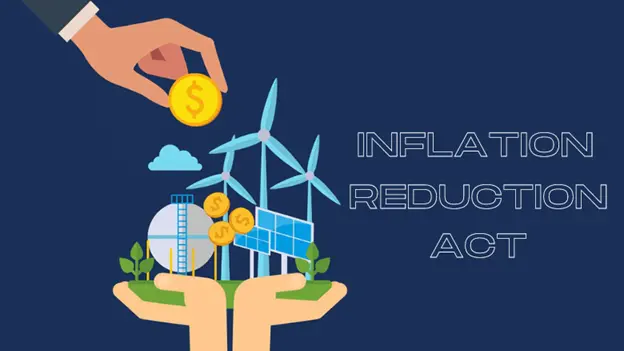19 Nov 2024
COP 29: Another Missed Opportunity for Action?
Despite a 2009 pledge to mobilise $100 billion annually by 2020, this commitment remains largely unmet, hindering adaptation and mitigation efforts. The 2015 Paris Agreement, while aiming to limit global warming, faces implementation challenges due to insufficient pledges and a lack of accountability. Developed countries, bearing historical responsibility for the climate crisis, must assume a leading role in mitigation and provide adequate financial support. Unfulfilled pledges perpetuate a cycle of vulnerability in the Global South, exacerbating the impacts of extreme weather events and rising sea levels. Climate change poses a challenge to sustainable growth in a number of industries and is not just an environmental concern. It is also an economic one. Insufficient investment for climate change exacerbates problems including growing debt in developing countries, decreased agricultural productivity, food insecurity, and volatility in sectors like tourism. These issues, which are linked to global accords like the Paris Agreement, are pressing and need to be addressed.
9 Jul 2024
Futurescapes Issue 2 – MENA at a Crossroads: Unveiling Looming Risks
At this pivotal juncture, the MENA region stands at a critical crossroads. The region is experiencing a decisive moment that will shape the future dynamics of inter-country relations and regional security, which has faced significant threats in recent years. This publication, prepared by a team of experienced researchers at the renowned Al Habtoor Research Centre, endeavours to forecast the Middle East's impending challenges. It aims to delineate the region's comprehensive political, economic, and security landscape over the past years.
Through a series of incisive analyses, we address the geo-economic challenges and their profound impact on the future of the Middle East and North Africa. These analyses are situated within the context of the sweeping transformations occurring in the global system, a system characterised by economic conflicts that both influence and are influenced by ongoing security and military escalations. These conflicts have altered the global power map and are anticipated to significantly reshape the current world order, making our research all the more pertinent.
Moreover, we examine the risks engendered by the prevailing state of uncertainty, which threatens nations' economic prospects and disrupts critical and vital trade corridors and routes such as the Suez Canal, Bab El Mandab, and the Strait of Hormuz. These corridors are indispensable to global energy security and international trade. The manifestation of these threats is evident in the tensions and conflicts we have observed in the Red Sea, which have heightened fears of potential disruptions escalating into broader military confrontations.
The publication further delves into the new frontiers of warfare, particularly the transformations imposed by cyberspace on the nature and strategies of conflicts. These changes have redefined armament and deterrence methods, yet the region remains significantly unprepared for these evolving threats. At a time when the Middle East is increasingly becoming an attractive target for cyber-attacks and unconventional warfare, there is an urgent and pressing need to enhance preparedness for such confrontations.
In the region’s prevailing instability and escalating political and security tensions, which have precipitated severe humanitarian crises, the migration challenge has surfaced as a critical determinant of the region’s future. Prominent among these tensions are the civil war in Sudan, the ongoing instability in Lebanon, and the conflict in Gaza. Additionally, the continuous deterioration of internal situations in Syria, Libya, Iraq, and Yemen has posed significant challenges for neighbouring countries. These conflicts have profoundly affected migration dynamics in the region, resulting in substantial security and political ramifications that are expected to unfold in the coming period. The migration issues also present vulnerabilities and potential entry points for external agendas to influence aid-receiving nations.
In this context, the region's climate change challenges also invite external actors to impose their agendas. These actors often condition their support and assistance for addressing climate change on political and security changes, thereby imposing different priorities on the region's countries and threatening its stability.
Ultimately, this publication represents the culmination of extensive brainstorming and research conducted over an extended period by our dedicated team alongside numerous experts and specialists. Our goal has been to produce a structured forecast for the future of a region mired in chaos, which inherently complicates the creation of definitive predictive models for the coming years. At Al Habtoor Research Centre, we are committed to illuminating the often-overlooked areas, especially those pertaining to anticipated crises and potential risks. This publication is part of a series of research outputs aimed at contributing to a more stable and prosperous future for a region beset by threats.
16 May 2024
Why the EU Elections Matter
The stakes are high for the EU elections which are set to take place on June 6. Since the last elections in 2019, the bloc has faced a significant number of complex challenges with the COVID-19 Pandemic and ongoing Russia-Ukraine War shocking the bloc’s economy and energy security, bringing to surface critical questions about common foreign and defence policy and triggering a crisis of misinformation, potential foreign extortion, and anti-EU sentiment to name a few. While the 2024 elections are expected by many to be a difficult test for European solidarity and resilience, they also have implications that reach beyond the bloc.
17 Apr 2023
What to Expect at COP28
The stakes are high at the upcoming UN Climate Change Conference (COP28), which will be hosted in the United Arab Emirates in November 2023. The United Nations’ Intergovernmental Panel on Climate Change’s (IPCC) latest publication on the state of climate in the world, the Sixth Assessment Report, warns that countries are way off track to limiting warming to 1.5 degrees above pre-industrial levels to avoid the worst impacts of climate change. The science clearly shows it is no longer a question of “if” human activities are the main cause of the disruption to nature - they certainly are - but there is also explicit evidence that we also have affordable and effective solutions that require immediate action and a serious commitment to changing our energy system. While past COP summits have attempted to reach consensus and binding international agreements on emission reduction strategies and goals, previous IPCC reports have repeatedly stated that climate plans need to be more ambitious. Despite this, countries are still lagging behind, even on the goals that are considered insufficient. With this, a number of pressing issues are expected to be at the forefront of the Dubai COP.
4 Apr 2023
Impact of the Inflation Reduction Act on the US Economy
Due to a number of circumstances, including Covid-19 supply disruptions, rising oil and food prices, and Russia's conflict in Ukraine, the world is currently suffering from high inflation. Likewise, the United States (US) is currently dealing with excessive inflation brought on by the inability of supply to keep up with demand and the increase of production costs. Following the Covid-19 pandemic, federal measures assisted in restoring employment and household income, but inflationary pressures also emerged. In attempt to combat such inflation the Federal Reserve has raised interest rates several times and the Congress passed the Inflation Reduction Act (IRA) which is considered an answer to some of the biggest challenges facing the country and a crucial step toward creating a more resilient and inclusive economy. The following will discuss the impact of the IRA on the US economy and evaluate its effects since its enactment.




